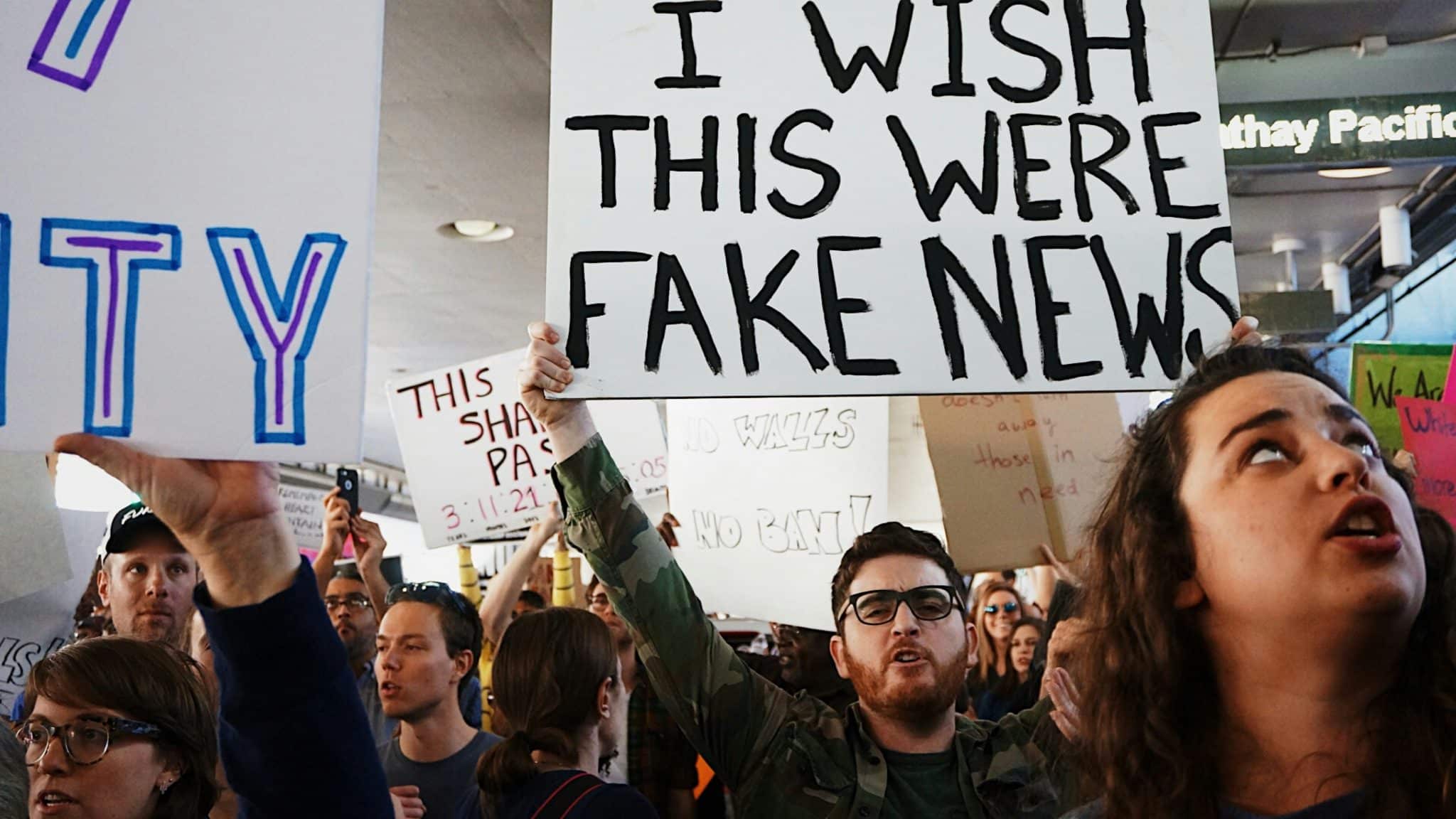Marc Bellemare: The Most Rewarding Things in Life Require Our Focus

Freedom has been the biggest boost to this writer & academic’s productivity
Here at Freedom, we frequently find ourselves inspired by the people who use our product.
From Academy Award-nominated screenwriters, bestselling authors, editors, and journalists, to developers, illustrators, designers, academics, and entrepreneurs – the Freedom community is packed with curious, creative, and passionate go-getters.
We love to share your stories because we believe the best way to solve the problems we face at work in today’s world is to learn from those who are living those experiences daily– and thriving while they do so!
Meet Marc Bellemare
Marc Bellemare is a writer and academic, specializing in Agricultural economics and applied econometrics. A Distinguished McKnight University Professor, Distinguished University Teaching Professor, and Northrop Professor in the Department of Applied Economics at the University of Minnesota, where he directs the Center for International Food and Agricultural Policy.
He also serves as one of four co-editors of the American Journal of Agricultural Economics, and previously served as one of two co-editors of Food Policy from 2015 to 2019.
His specific areas of research –for which he has won numerous awards– include agricultural value chains, risk and uncertainty, and the consequences of high and volatile food prices. His work has been featured in media outlets such as The Economist, the New York Times, National Public Radio, and The Wall Street Journal, and he is the author of Doing Economics.
Marc has been using Freedom for a number of years to help him in his many roles, so we were excited to sit down with him to learn more about his work and find out how he makes time for it all!
When did you realize that your relationship with technology was something that needed to be examined?
I’d known for at least a few years that my relationship with technology was problematic. I was always a voracious reader, but after spending the 2009-2010 academic year on sabbatical in Europe, I got my first smartphone when I returned to the US. That introduced a structural break in the number of books I read per year; all my reading time came to be replaced by “reading” mindless stuff on the Internet.
I am 46. In what I am hoping is the middle of my life, I am realizing that there are many things I still would like to do while I still can, and many of those things will require that I be focused. In that spirit, I started reading Johann Hari’s Stolen Focus. Before reaching the end of chapter 2 I had already decided to remove Twitter, my browser, and my mail reader from my phone, and to re-install Freedom, which I had used on and off over the years.
After I got my first smartphone all my reading time came to be replaced by “reading” mindless stuff on the Internet.
What are your biggest distractors while working and how do you conquer them?
Twitter, email, and news sites while I am working at my computer. Twitter while I am away from work, with only access to my phone. I have deleted Twitter from my phone, and I have removed the mail reader and the browser from my phone’s home page.
The biggest boost to my productivity has come from Freedom, which I have reinstalled on my computer. I had used it for a while a few years ago, but I did not like the fact that at the time, it was an all-or-nothing proposition: You turned off the Internet, or you didn’t. As an academic, I need access to Google Scholar, university libraries, and so on while I work. I also need to access Overleaf, the web-based app I use to write my own manuscripts and to collaborate on coauthored manuscripts. Luckily, Freedom now allows you to shut certain things out (in my case, email, news sites, and social media).
How do you stay motivated and focused on a daily basis? Do you have a routine, process, or place that helps you get into a productive flow?
I have never had any problem staying motivated, as I love my work and I have more research questions I would like to answer than I have the time to!
I stay focused by eliminating distractions, such as removing distracting apps from my phone and cutting off access to distractions on my computer. As for a place that helps me get into a productive flow, I do most of my writing from my home office, where I am literally surrounded by books and guitars, or from the porch of my house. I think I wrote the entirety of my book Doing Economics from the porch!
How do you incorporate Freedom into your daily routine?
I look at what I need to get done and how much time I have before the next meeting, and I set up a “work” session with Freedom that blocks off email, social media, and news sites so I can focus on the task at hand for the time I have ahead of me.
These past few weeks, I have used Freedom for two distinct purposes: First, to revise an article I had submitted to a journal and which had been sent back to me and my coauthor with comments from reviewers, and which we had until the end of June to resubmit. Second, to practice specific things on the guitar and record the homework for an online guitar class I am taking.

How do you prioritize what tasks, activities, or people get your time each day?
Generally, I try to get all of my productive work (which usually means working on research) done in the morning, when I am at my most productive, and to keep meetings for late in the day, when my productivity would be at its lowest.
Since I am always working on several things at once, I always work on the one thing that has the highest expected return at the margin. Because peer-reviewed journal articles are the coin of the realm in my discipline, this means that between a research paper that is in its early stages and one where a revision has been requested by a journal, I always go with the latter.
I also take a look at my editorial queue at the journal for which I am co-editor a few times a day to see whether any article needs to be sent out for review or is ready for a decision.
What is one small shift that you have made about the way you spend your time that had the largest impact on your quality of life?
I’m not sure whether it’s a small shift, but when my daughter was born, I went from working for long periods of time (i.e., two-to-three-hour blocks) to catch-as-catch-can. In other words, developing the ability to do productive work for shorter periods (i.e., 30 to 60 minutes) had a huge impact on my quality of life, because there are several of those periods in a week, and they can really add up if you use them to be productive.
Developing the ability to do productive work for shorter periods (i.e., 30 to 60 minutes) had a huge impact on my quality of life.
What is one behavior or trait you see consistently in your most successful students?
They are organized, and they are persistent. Ultimately, in a profession where everyone is smart, it is not enough to be just smart; you also need to be organized and to be able to deal with rejection.
What are some of the tools you can recommend for students?
I’ve been recommending Cal Newport’s Deep Work to my students ever since I read it when it came out, and I strongly recommend using Freedom and their smartphone’s functions that can help eliminate distractions.
For students in economics, demography, business, political science, public policy, and other quantitative social science, I recommend my book Doing Economics: What You Should Have Learned in Grad School―But Didn’t. The title notwithstanding, it is filled with useful advice for early-career researchers in all quantitative social sciences.
What do you do outside of your work routine that helps you stay productive?
I am not one of those people who can get by with a few hours of sleep. I tend to go to bed early, almost always before 10:30. I also get up early, very rarely past 7. I also journal and meditate regularly.
I had been very good at maintaining a daily exercise routine in 2021 and early 2022, but that sadly went out the window this past semester, as my wife had to have foot surgery and spent six weeks not being as mobile as she normally is.
What projects are you currently working on that you are most excited about? (Feel free to talk about some of your previous work here, if you would rather not promote a future project.)
My first book, Doing Economics: What You Should Have Learned in Grad School―But Didn’t, just came out, which has kept me pretty busy. But after spending the last two writing a book and a chapter on agricultural value chains in the Handbook of Agricultural Economics series, which is like writing another, shorter book, I am only too happy to get back to writing articles for peer-reviewed journals.
Lately, I have been working on two such articles. The first article provides a real-world application for the front-door criterion, a method that allows identifying the causal impact of a given variable on another variable when certain conditions are met. In that case, the application is to the consequences of shared rides on Uber and Lyft on tipping–both whether a rider tips and how much she chooses to tip when she does tip. There is this belief out there that shared rides lead to lower tips, but what we find is that it’s not the ride, it’s the rider: More frugal consumers are the ones who choose to share rides.
The second article looks at the impact on producers of providing insurance against price fluctuations. In the context of agriculture in low- and middle-income countries, where agricultural insurance is very uncommon, microeconomic theory says an uncertain output price leads producers to produce less than they would if they faced a certain price. Here, we run lab-in-the-field experiments with agricultural producers in rural Peru to look at what price uncertainty does to their production, and at whether being insured against price risk causes them to produce more.

For about Marc see his official website and follow him on Twitter.



